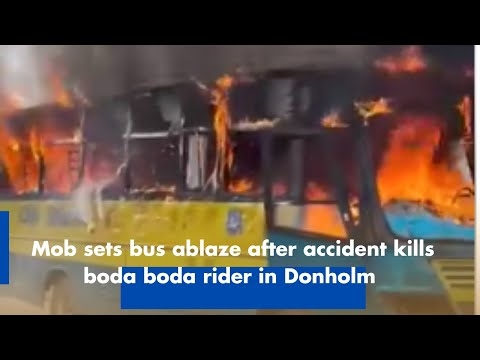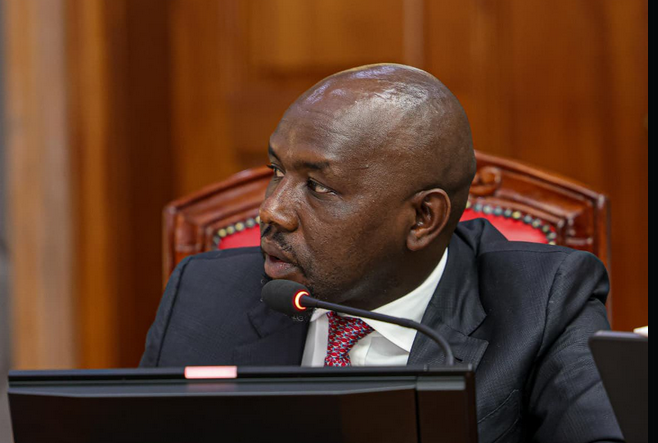
 Interior CS Kipchumba Murkomen/MINA
Interior CS Kipchumba Murkomen/MINAInterior Cabinet Secretary Kipchumba Murkomen has sounded the alarm over
rising insecurity linked to criminal infiltration in the boda boda sector.
Appearing before the Senate on Wednesday, he cited a surge in violence and
lawlessness, particularly in Nairobi, Western, and Nyanza counties.
“One of the security issues that has captured the attention of the public
lately is the violence perpetrated by boda boda operators, especially torching
of vehicles in road traffic accidents,” he said.
Murkomen outlined a multi-agency strategy to restore discipline and
accountability in the sector, which he described as vital to Kenya’s transport
economy.
“In our actions and undertaking, fidelity to the Constitution is always a
guiding principle,” Murkomen said.
He noted that while the country remains calm and stable, recent months have
seen sporadic security challenges including banditry, land disputes and
resource conflicts.
He emphasised that these issues are reflected in the questions Senators have
raised in recent sessions.
Among the most pressing concerns, Murkomen said, is the growing violence
involving boda boda operators.
Murkomen attributed the rise in disorder to the sector’s rapid growth with
minimal regulation.
“The boda boda sector remains a vital pillar of Kenya's transport economy,
providing employment and livelihood for thousands of youths nationwide,” he
noted.
“However, its rapid growth with minimal regulation has led to disorder,
lawlessness and rising insecurity associated with unregistered and unidentified
riders.”
The CS notified the Senate that the government had just concluded a 47-county
tour under the “Jukwaa Usalama” banner, engaging citizens and security
stakeholders on grassroots safety concerns.
“The forum revealed concerns that criminal elements have infiltrated the
boda boda sector across the country. There is a complaint in almost every
county,” he noted.
To address the crisis, Murkomen said there is coordinated effort involving
the National Transport and Safety Authority (NTSA) and county governments.
“We are working with NTSA and county governments to ensure all operators are
registered under SACCOs and assigned to operation areas,” he said.
He added that SACCO leadership will be tasked with enforcing discipline and
reporting rogue operators to authorities.
The government also plans to integrate SACCO leaders into community policing
structures to enhance intelligence gathering and promote accountability.
“We are exploring modalities of incorporating the leaders into community
policing to enhance responsibility and aid in intelligence gathering,” Murkomen
said.
He issued a stern warning to criminal elements hiding within the sector,
stating that“Criminal elements who masquerade as boda boda operators will be
prosecuted to protect the integrity of the sector.”
Murkomen acknowledged the contributions of Senators who have raised concerns
and proposed reforms, including Kakamega Senator Boni Khalwale, whom he
credited for ongoing work on the issue.
The reforms aim to strike a balance between preserving the economic benefits
of the boda boda sector and ensuring public safety.
“To ensure the sector contributes optimally to the economy while at the same
time preserving law and order, we must act decisively,” Murkomen said.
The government’s crackdown signals a shift toward structured regulation and community-led enforcement, with the goal of restoring trust and safety in one of the country’s most critical transport sectors.





















